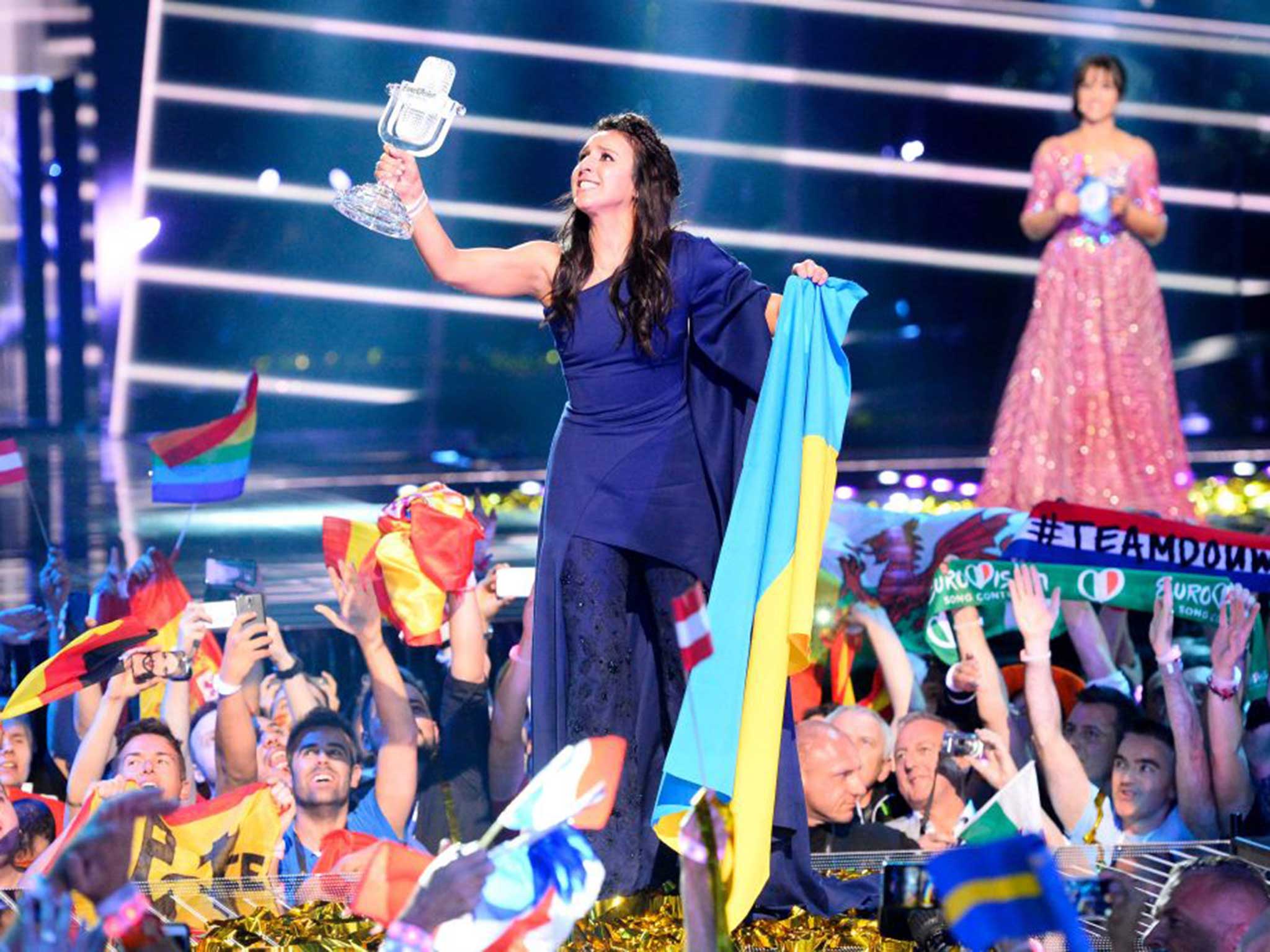Eurovision contestants should have the courage to sing in their own languages
When everyone strives to sound just like Adele or Westlife, something has been lost

Time was when Eurovision songs stuck to the safe territory of boy-meets-girl and love is all around. Not any longer. Ukraine’s winning entry "1944", performed by the ethnic Tatar singer Jamala, avoided the subject of thwarted passion entirely to focus on the meatier issue of Russian ethnic cleansing in her Crimean homeland.
It contained the most un-Eurovision-like refrain: “When strangers are coming, they come to your house and kill you all.” Not a song, one suspects, that will get much airplay in the nightclubs of Moscow.
Apart from being pointedly political, Jamala’s full-throttle blast against Russian colonialism was – inevitably these days – delivered for the most part in English. So, in fact, was Russia’s own entry, "You are the only one". Ditto Estonia, Croatia and virtually everyone else, except for the Austrian contestant who bravely risked singing in French.
It is easy to see why almost all the contestants taking part in Eurovision these days prefer to sing in English rather than their own tongue. They fear they won’t win unless everyone gets the message.
For a start, courtesy of Jamala we now know what Crimean Tatars think of Russia’s actions over the years in the Crimean peninsula. Possibly, viewers would have tuned out and gone off to make a cup of tea had she sung the whole thing in Tatar or Ukrainian.
In some countries, such as Holland and the Nordic countries, English has been spoken so widely and so well for so long that it comes naturally to them to use what undoubtedly is Europe’s lingua franca when addressing international audiences. Still, one cannot help feel a certain melancholy about this trend. It is a sad day when even the French feel they have to sing in English.
We may be gaining something on one level, in terms of instant appreciation of the lyrics, but surely we are losing something important as well.
Back in the day, when almost all Eurovision contestants sang in their own languages, viewers had a chance to immerse themselves in different musical cultures. Now, when everyone seems to strive to sound just like Adele or Westlife, something has been lost.
A European song contest should draw on the riches of Europe’s different languages, not aim for dull homogeneity. Vive la difference, in Eurovision, as in everything else.



Join our commenting forum
Join thought-provoking conversations, follow other Independent readers and see their replies